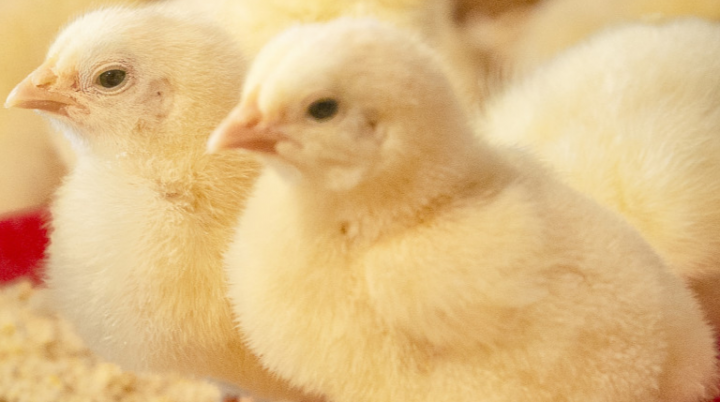Start-up of doctoral research into broiler breeder nutrition and chick quality
At the beginning of March, an extensive chain-transcending doctoral research project was initiated at the De Heus experimental farm in Alphen (The Netherlands) in cooperation with Wageningen University & Research. The objective is to investigate the influence of the broiler breeder nutrition on egg composition and chick quality. With this unique study, De Heus aims to gain greater insight into the relationship between the broiler breeder nutrition and broiler quality. With the results of this study, De Heus wants to contribute to the realisation of excellent chick quality and start-up of the day-old chicks.

Unique Study
Up until now, barely any research has been conducted anywhere in the world into the nutrition of broiler breeder hens in relation to chick quality. The currently available literature is often outdated and no longer applicable to modern genetics or current management practices. Furthermore, research that was conducted often focuses on the nutrition of the broiler breeders in relation to production performance or welfare, but not on the vitality and performance of its offspring. It is consequently impossible to establish a direct link between the mother hen and its offspring. A unique aspect of this study by De Heus is that the different links in the supply chain, rearing, production, incubation of hatching eggs and broiler farms will be connected with each other.
In the first part of the study, the broiler breeders are placed at the research facility as day-old chicks, where they will be monitored up to the end of production. These broiler breeders will be reared in accordance with various weight curves. Within these weight curves, De Heus will administer different feeds, which will create differences in body composition. During the production period, the eggs will be hatched at different ages of the broiler breeders, from young broiler breeders to old broiler breeders. Hereafter, the broilers will be monitored under equal conditions up to their slaughter age. By varying the weight of the broiler breeder hen, as well as body composition, it is possible to assess which factors best relate to excellent chick quality.
In this study, De Heus will conduct measurements within the different links of the chain and at critical times. For example, not only the body weight and composition of the broiler breeders will be measured, settable egg production, fertility, hatchability and behaviour will also be measured. The egg composition of the eggs produced by the broiler breeders will be determined. The hatching eggs will be hatched at different ages of the broiler breeders. At hatch, chick quality will be measured immediately. This will include an assessment of the vitality, weight, activity and residual yolk uptake. In the last part of the chain, the day-old chicks will be placed at the research facility for broilers and monitored up to their slaughter age. During this period numerous observations will be made to determine the effect of the broiler breeders nutrition on the offspring.
This information will enable De Heus to further optimise the nutrition of broiler breeders in order to secure high chick quality and an effective start-up of the chicks originating from the broiler breeder hens of De Heus’ customers.
Cooperation
There will be intensive cooperation with Wageningen University & Research and various breeding organisations during this study undertaken by De Heus. Professors Martin Zuidhof of the University of Alberta and Rob Gous of the University of KwaZulu-Natal are also involved in this study.
Due to this involvement, the study will be assessed from various angles, and furthermore, it will be easier to apply the results in practice.
Study
The initiated doctoral research is an extensive multi-year scientific study. De Heus expects to have all of the results of the first part of the study in June 2020.
